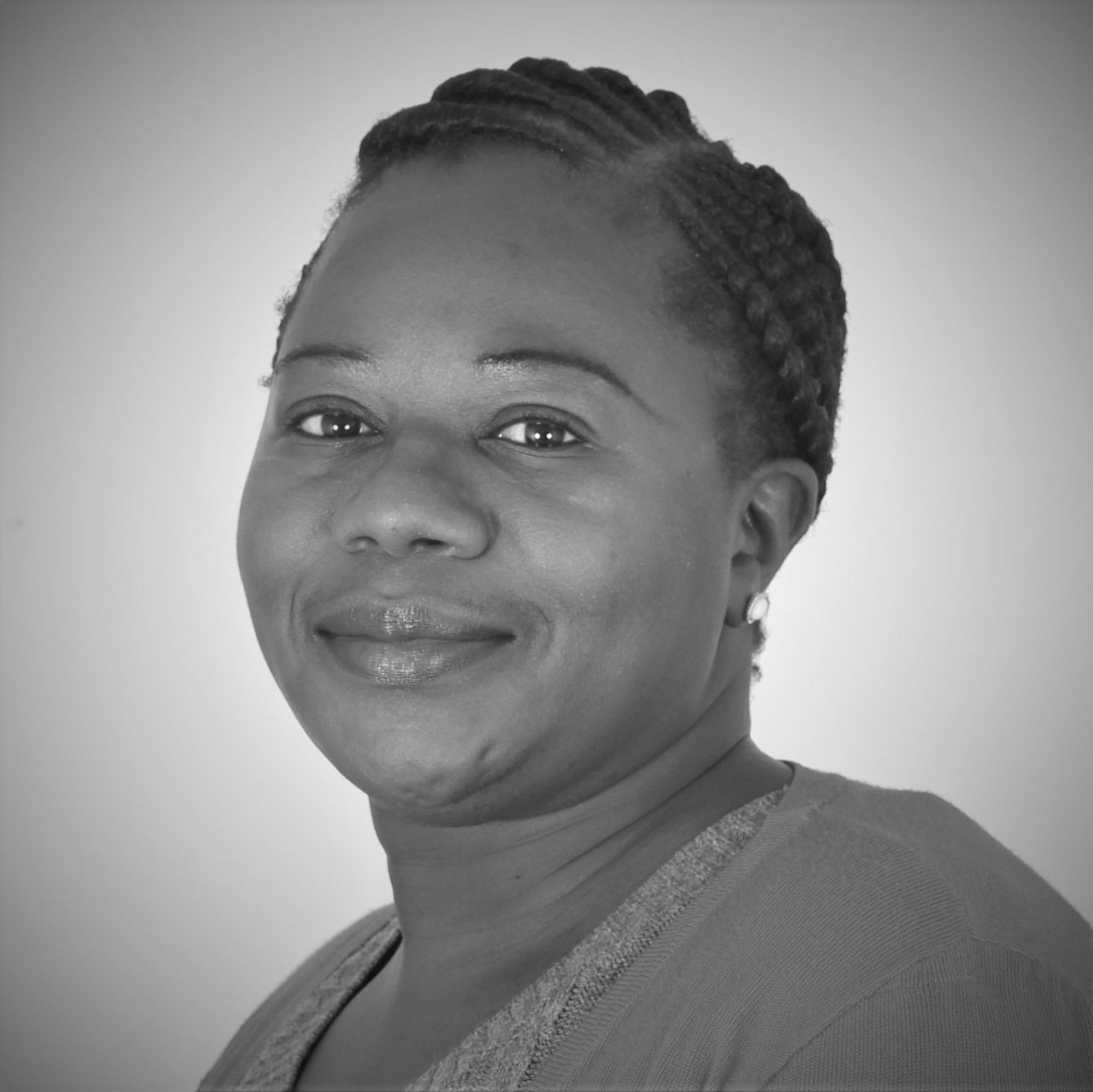
Development projects generally require the investor to map out the terms, based on experience and lessons draw from similar initiatives in the past. Experience and global best practices are necessary, of course, in determining the type of financing, the duration of your commitment, the risk management strategy, and the exit plan.
Inevitably, however, a challenge occurs that is very local in nature. When this happens the local project leaders are likely to be the most knowledgeable about what to do. This could be a challenge from weather disruption, local cultural influences — or, as happened most recently, a pandemic that, though global, has had unique repercussions in every corner of the world.
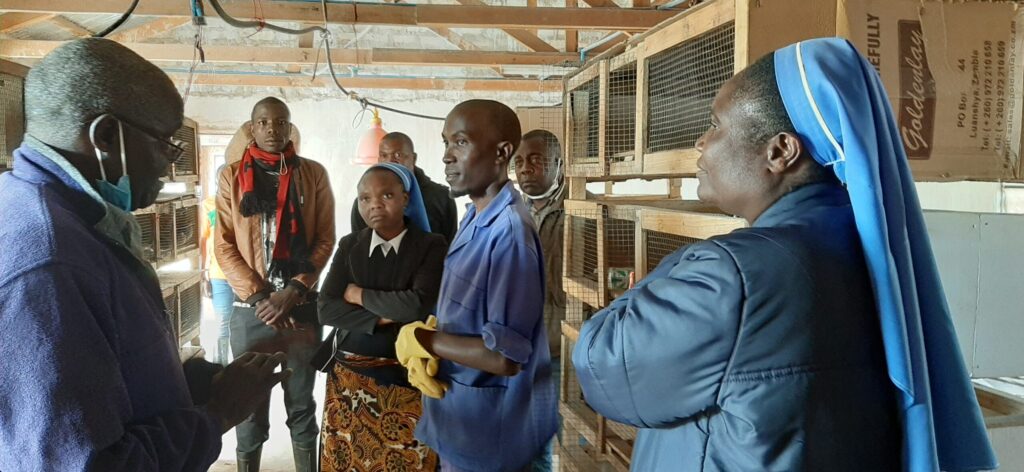
Missio Invest offered special grants to all of its investees to help in the COVID crisis, but investees decided on how to put the funds to use. The SCJ Farms committee discussed how they might mitigate the losses they faced from having to continue feeding their live chickens while losing income from the sales to schools. The plan they came up with was to use the funds to invest in more refrigerators which would allow them to get chickens to market at a slower pace. It turned out that they were able to sell the chickens at a better price than they had been getting when they sold them live.
This is an emergency plan that requires the kind of first-hand knowledge that only a local partner can provide. An investor who is seeking to provide transformative change — rather than just transactional capital — can’t expect to effect such changes from behind a desk in a faraway urban financial center. It’s the day-to-day decision making by those on the ground that ultimately determines the impact and the success of the project.
The Marist Brothers Farm (MBF) in Dedza, Malawi, faced another issue when the pandemic struck: they were about to bring in a harvest, but workers were not showing up due to fear of the virus. For some, there was a stigma attached to farm work, due to local rumors that cattle, pigs, poultry and other farm animals were carriers of the coronavirus. To bring in the workers they needed, the MBF needed to educate the community about how the disease is spread, increase wages as an incentive, and introduce dual shifts.
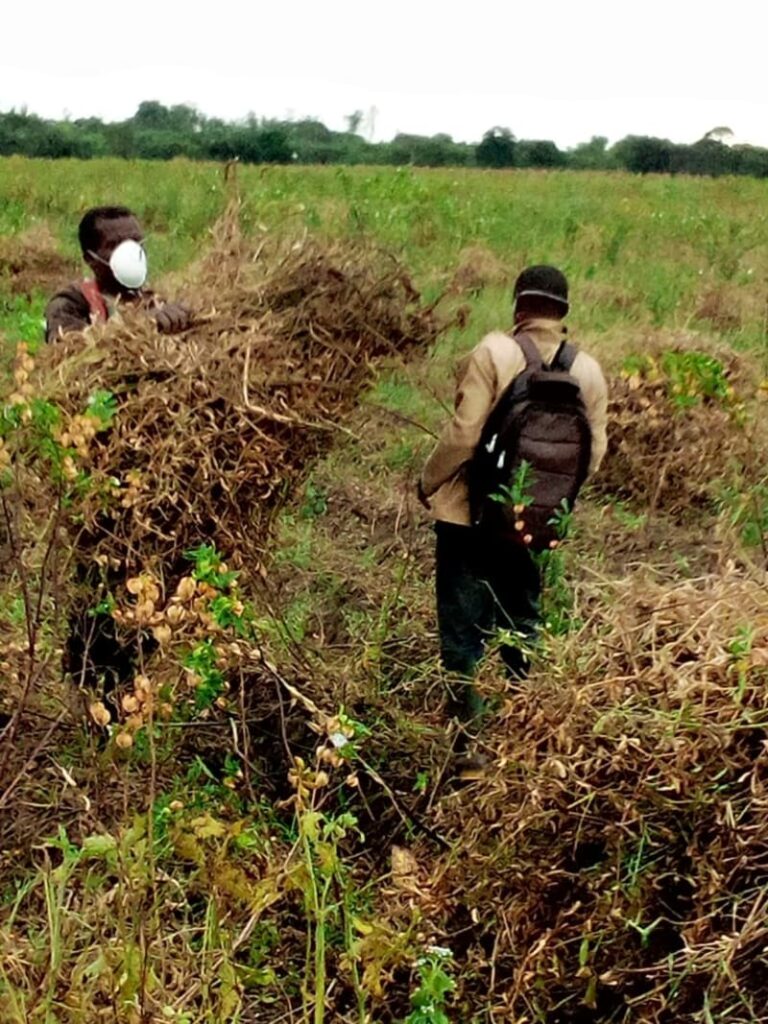
We recognize at Missio Invest that we can’t afford to write off our investments to local disruptions or a global health crisis. Nor does a strategy that works in one place necessarily work everywhere else. So we have to rely on our local partners to help determine how to solve problems head-on. At the same time, working with local partners this way is critical to maximizing the impact and bringing on transformative change. As we see it, when we combine our capital and technical training with the investees’ knowledge of what their communities most need, our investees gain the skills and resources they need to be resilient over the long term.
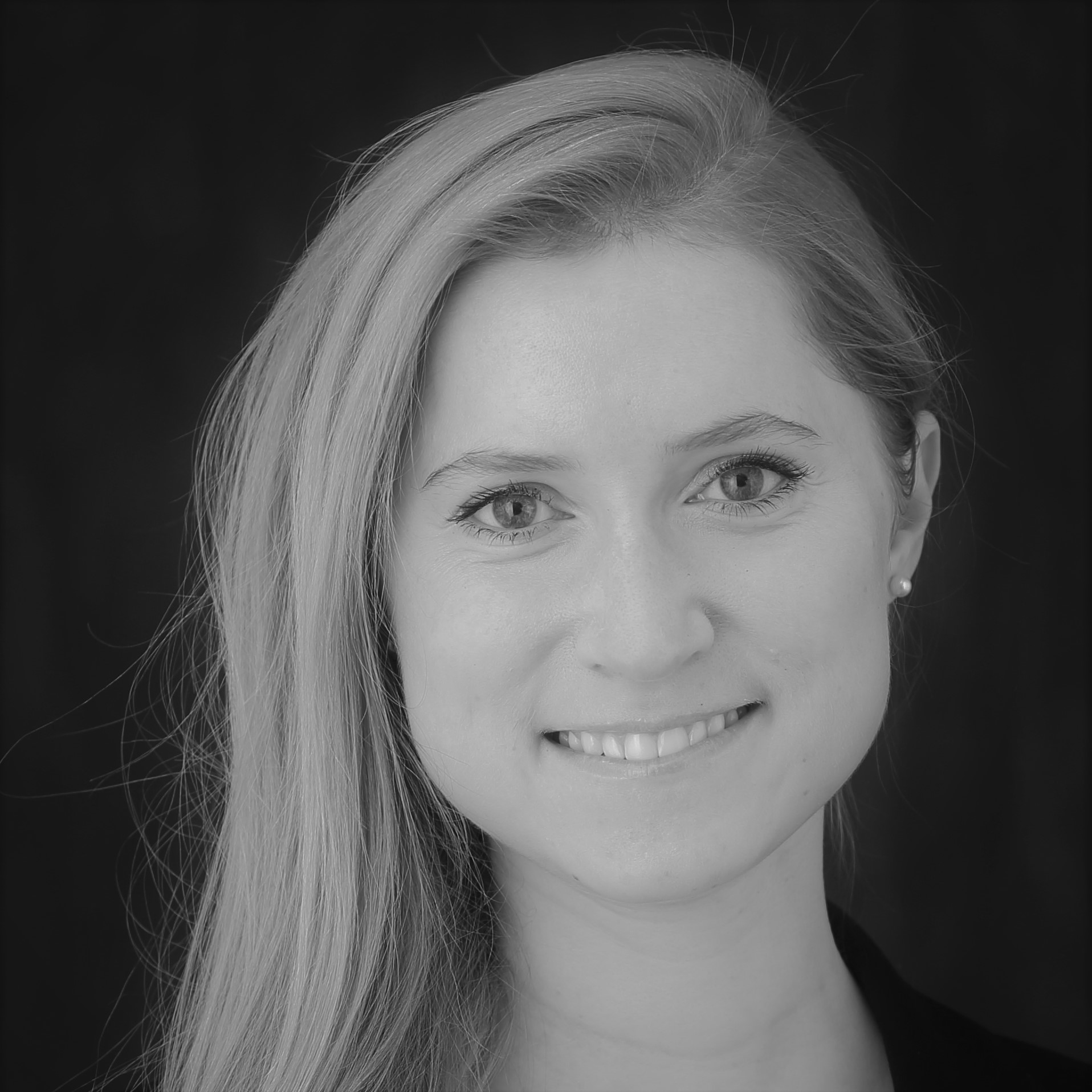
While the COVID crisis has affected all businesses, the high impact “nuntrepreneurs” in Missio Invest’s portfolio seem to have found a window of hope. The Missio Invest Social Impact Fund (MISIF) currently has 36 agribusinesses in the portfolio, 13 of which are owned by Sisters, and none of these small enterprises have considered shuttering operations. For many, in fact, business is booming. Half of all current borrowers have experienced minimal disruption and elected to maintain their original loan repayment schedules. Among the nuntrepreneurs, less than a third have taken Missio Invest’s offer for a COVID-19 payment moratorium, and a quarter have even made pre-payments on their loans.
Missio Invest has found that this long-term give-and-take with community stakeholders is essential to the resilience of Church-run businesses. Investees operate various social programs in their locality — healthcare, education, women’s counseling, and youth development, for example — and as such are an integral part of the communities they serve. Although each case is unique, five particular characteristics help insulate investees from unanticipated adverse events:
Across the globe, COVID-19 has wreaked havoc on global supply chains, disrupted access to markets, and severely threatened–or shuttered–many small businesses. The effects have been particularly devastating in emerging markets, where government assistance is less readily available and nationwide lockdowns are more restrictive due fragile health systems. In May, in a survey of small and growing businesses in emerging markets, the Aspen Network of Development Entrepreneurs (ANDE) found that 47% of businesses surveyed had already temporarily shut down operations and another 25% anticipated doing so. Women-owned businesses were among the hardest hit.
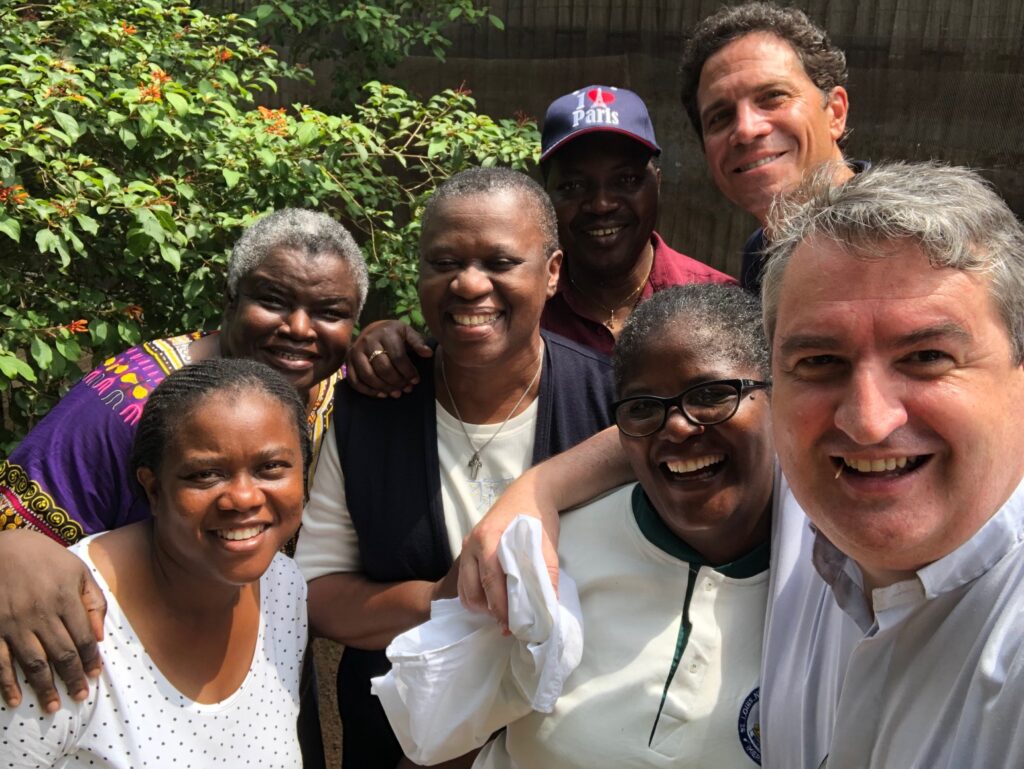
Copyright, Missio Invest
One such women-owned success story is the Sisters of Saint Louis Bautain Farm (SSLBF) in Ewulu, Delta State, Nigeria. Missio Invest issued the Sisters of St. Louis a $70,000 loan in December 2019 to fund expansion of their existing poultry, pork and cassava processing enterprises. In the ensuing months, the Sisters have proven their ability to weather a global crisis.
In late March 2020, the Nigerian government imposed COVID-19 lockdown measures restricting interstate movement of goods and limiting food importation. These regulations disrupted supply chains for foods such as fish, which could no longer be transported from seaports to inland states. To make the situation worse, Delta State was one of a number of state governments that imposed restrictions on local fishing activities and reduced hours for local markets. The result was a drop in supply so that fish, a staple food for many Nigerians, became prohibitively expensive for the large low-income population.
Sister Catherine Adelegan, director of Louis Bautain Farm, had an idea for a solution. Louis-Bautain Farm is a multi-enterprise agribusiness, operating a poultry unit with over 1,000 chickens, a five-acre cassava plantation and processing unit, and a piggery with over 500 pigs. Having sourced a sufficient supply of pig and chicken meal locally before the pandemic, Sister Catherine slaughtered and sold her pigs ahead of schedule, saving the most vulnerable members of her community from hunger. The result was a win-win-win: community members had access to affordable protein, Louis Bautain Farm had income to support the congregation’s five health facilities, and Sister Catherine had enough surplus income to pay interest on her Missio Invest loan ahead of schedule. Wisely anticipating the potential for future currency fluctuations, she even chose to pay more than the amount due, resulting in a pre-payment of principal.
The Sisters have developed close ties with the surrounding community. Recently, when they visited the local Obi (ruler) of Ewulu Land and his Council to tell them they had food staples to distribute to the neediest, the Obi expressed his gratitude for the Sisters’ long history of assisting his people and vowed that he would continue to support them and to ensure their safety.
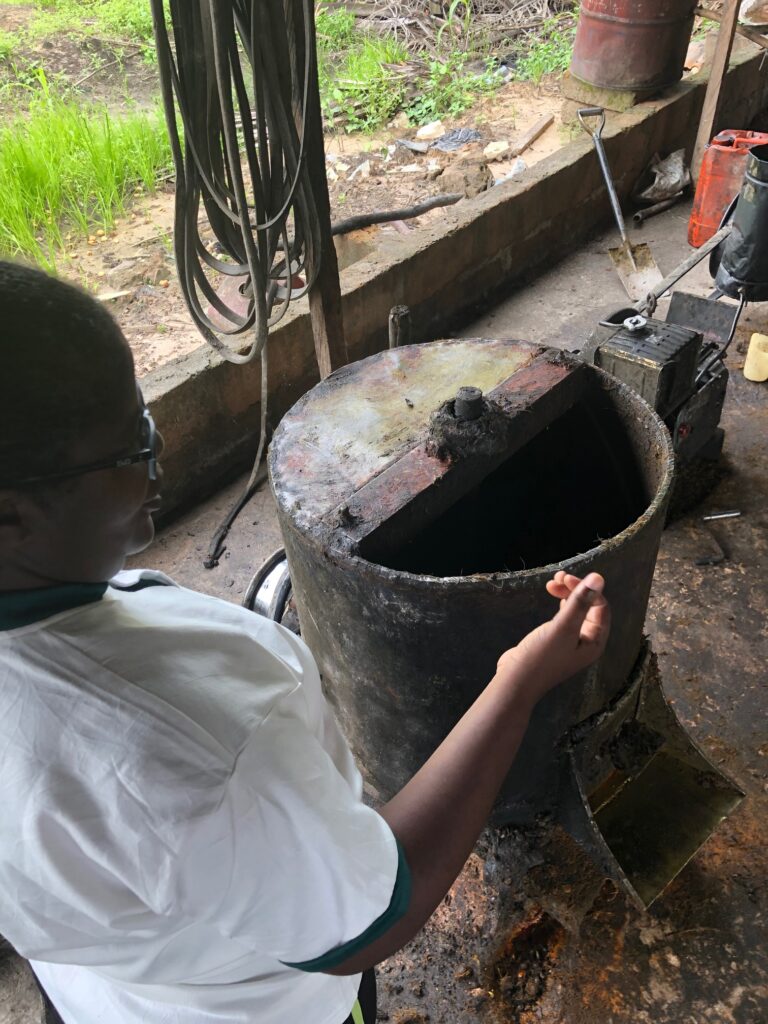
Copyright, Missio Invest
- Integration with local communities, which serve as customer bases and sources of labor in any economic cycle.
- Presence of resilient markets for produce through the global network of Church-operated schools, health facilities, and other social institutions.
- Diversification across several revenue-generating enterprises, which creates a cushion in the event of market disruptions to any one sector.
- Hyper-local solutions, which ensure that Missio Invest’s borrowers are not dependent on export markets and supply chains.
- Experience in managing business operations with limited resources during times of crisis. Many congregations were formed in poverty-stricken rural areas with the explicit purpose of finding ways to provide healthcare and education services where none existed, and they have retained their expertise in operating through difficult circumstances.
These factors have enabled many of Missio Invest’s portfolio agribusinesses to weather the COVID-1 9 storm. Investees like Sister Catherine and her farm in Nigeria provide living proof that, even in times of crisis, it is possible to do a lot of good with very little.
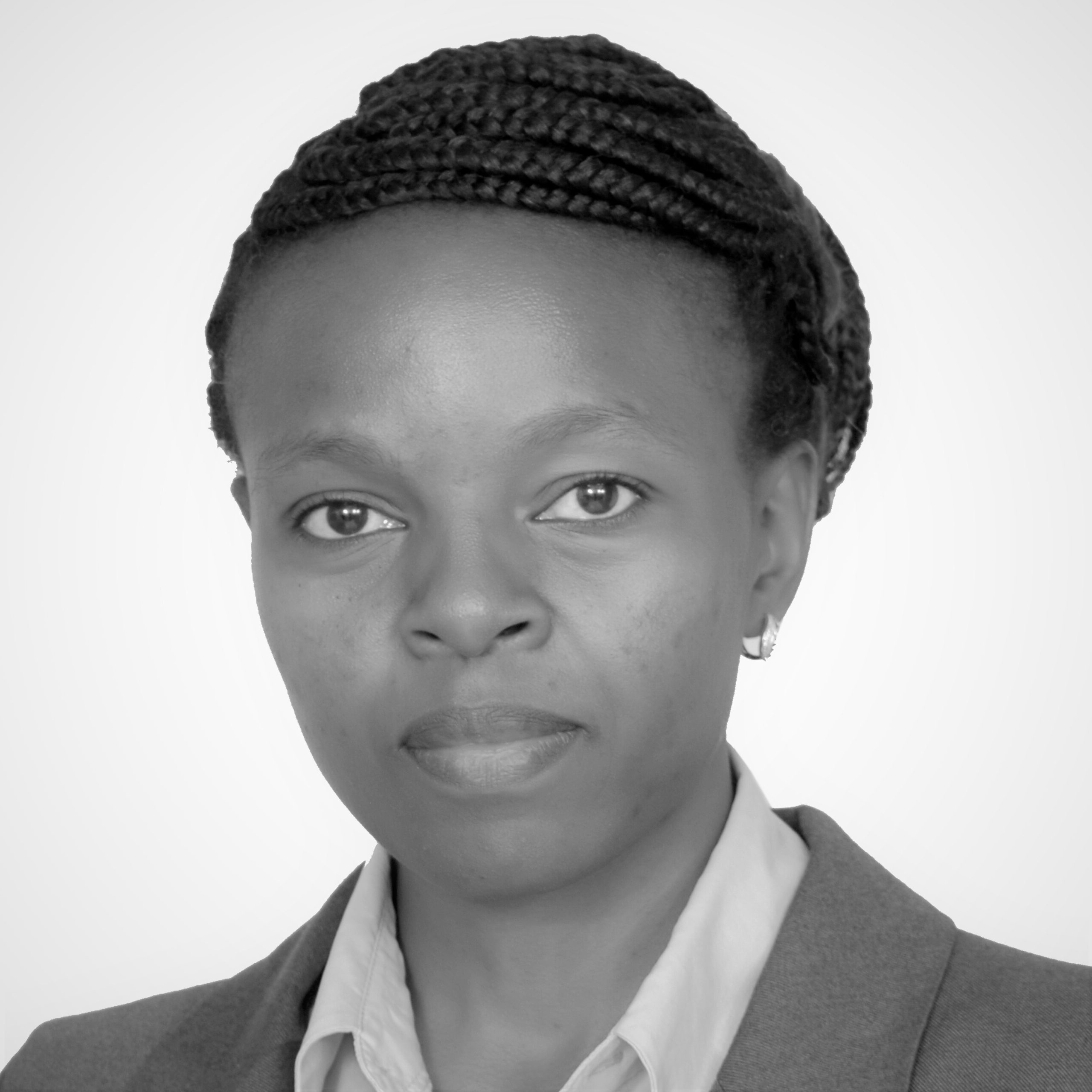
In September 2004, five Catholic Sisters gathered in St. Louis, MO with a mission to create an exhibition demonstrating how nuns had helped shape the history and culture of the United States. The show that resulted, “Women and Spirit: Catholic Sisters in America,” toured the U.S. between 2009 and 2012, with stops that included the Smithsonian, Notre Dame and Saint Mary’s College, and the Ellis Island Immigration Museum. It bore witness not just to the many acts of heroism carried out by Sisters over a nearly 300-year time-span, but also to the common Spirit that drove these women to live remarkable lives, often by creating oases of service to meet a pressing need at a given time in the nation’s history.
The exhibition was a tribute to pioneering women who helped build America’s health care, education and social services at a time when women didn’t have the right to vote. They raised funds to build schools, hospitals, orphanages and colleges before most women in the U.S. could legally own property, negotiate contracts, or acquire loans. They entered the workforce decades earlier than most women — during the Civil War, for example, when more than 600 Sisters served as nurses. During the Civil Rights Movement of the 1960s, nuns joined Martin Luther King in the voting rights marches in Selma, AL.
Standouts included Mother Alfred Moses, who helped develop the Mayo Clinic in response to a horrific tornado in Rochester, MN in 1883; Katherine Drexel, who founded Xavier University in 1915, then the only Catholic school for African Americans; and Carolyn Farrell, a Sister who in 1980 became the mayor of Dubuque, IA. However, such pioneers are not only to be found in history books and exhibitions. The same Spirit that inspired Mother Alfred and Katherine Drexel is alive and well among many religious Sisters in Africa today. Over the years, they too have raised funds to build hospitals, health clinics, schools, and children’s homes.
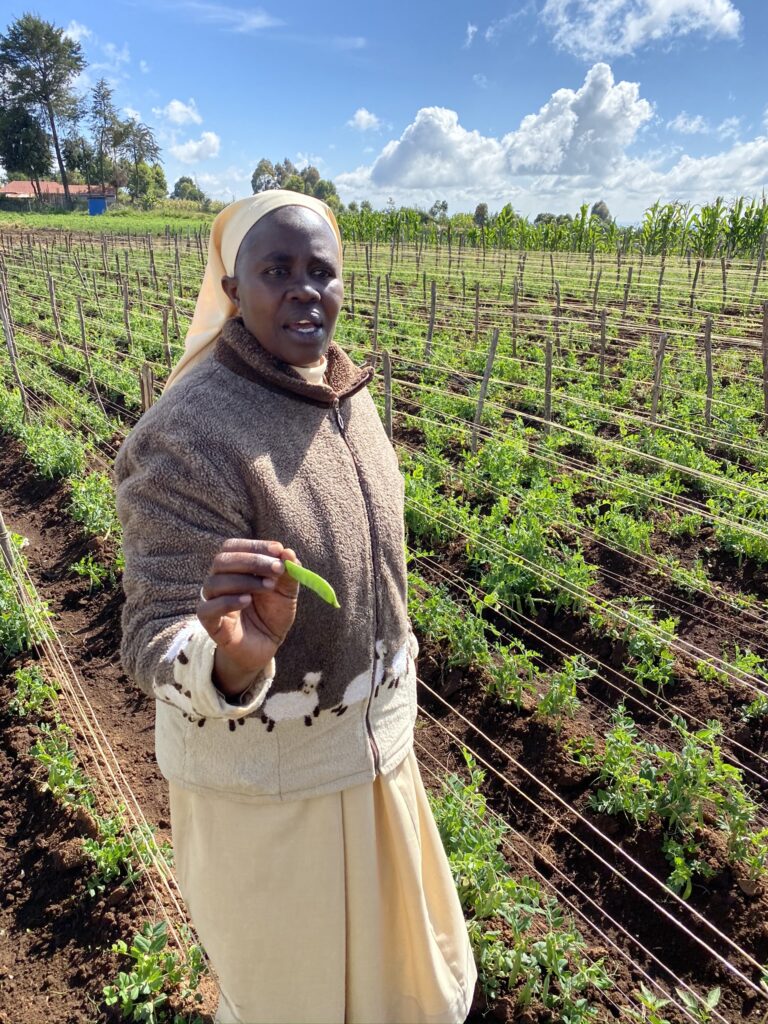
January, 2020
Take, for example, Sister Veronica Kiarie, a Little Sister of St Francis of Assisi known by her fellow Sisters as “Green Thumb.” She runs a medium-sized farm in the town of Molo, in Kenya, a venture that sprang from her passion to support the congregation’s social ministries, as well as to provide employment and drinking water to the neighboring community.
Sister Veronica’s congregation is an indigenous institute of Diocesan right. It was founded in May 1923 in Uganda by the late Mother Mary Kevin Kearney, a Franciscan Missionary for Africa, based on the charism of St. Francis: “To bring newness and fullness of Christ’s life in the world today by reaching out with compassion to the marginalized.” With more than 775 professed members, the Sisters operate hospitals, schools, health facilities, orphanages and homes for the elderly. Their missionary work is growing within the three East African countries of Kenya, Uganda, and Tanzania as well as in the United States.
Sister Veronica developed a business plan for her pea farm after attending a six-month agribusiness training program, and took out a $100,000 loan from Missio Invest in 2019. The farm grows garden peas for export, and rotates potato and cabbage crops for local consumption. Some of the farm produce is used to supplement the diets of the residents of the congregation’s home for the elderly, while the profits of the farm are used to support the running of the congregation’s social ministries. The farm directly supports a school with 946 students, a health facility serving nearly 12,000 patients a year, and a home for the elderly. Sister Veronica has a goal of generating more revenue from her farm to sustain and grow the congregation’s social work.
Like Mother Alfred before her, Sister Veronica provides innovative solutions to problems facing the community she was called to serve. She installed a solar-powered borehole on her farm after observing how the villagers were struggling to access clean drinking water. She also installed a five-acre drip irrigation system for year-round farm production and water conservation. She uses her teaching skills to train local smallholder farmers in sustainable agricultural practices. To boost the soil fertility, she tests her soil to ascertain the mineral deficiencies, uses organic manure, and has planted 2,700 trees for conservation. The farm supports 50 workers.
Sister Veronica creates time to mentor women on how to handle social economic challenges, and men on how to overcome alcohol addiction which is common in the locality. She also teaches Catechism in a nearby Parish.
Over the last 50 years, the number of Sisters in congregations in the United States has clearly dwindled. But in each case, such reduction has little to do with the entrepreneurial vigor of the Sisters or their communities. The African Church entities we work with are on a similar growth trajectory to the one that inspired German immigrant Sisters in Rochester MN to convince Dr. William Mayo and his sons to start a hospital for the local community in 1889. The spirit of those religious women is alive and well in Africa.
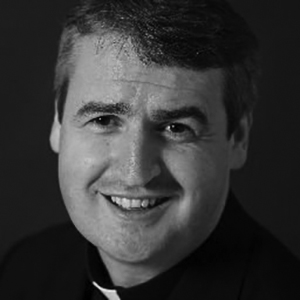
Missio Invest currently has a loan portfolio including 28 Catholic Church owned and operated agriculture small and medium enterprises (SMEs) across 5 countries (Nigeria, Uganda, Kenya, Malawi, and Zambia). As the COVID-19 outbreak incrementally spread through Africa in March 2020, it became clear that a proactive, and rapid, approach to reducing the impact of COVID-19 on essential business activities, and related social services (schools, health facilities, elderly care centers, etc.) of existing loan recipients was critical to support. We, therefore, conducted rapid assessments amongst loan recipients and Catholic Church counterparts in each country and quickly implemented the following actions with the intention of supplying a rapid lifeline to these local businesses.

1. Our immediate response
Moratorium on loan payments As of April 1st, each loan recipient has been given access to an option of a moratorium on all principal and interest payments through January 2021.
2. Quick injection of emergency COVID-19 grants to SMEs
Via its fund sponsor, Missio.org, and the broader Catholic community, Missio Invest raised a small COVID-19 Emergency Response Fund. Each loan recipient has access to up to $15,000 for a business support and social services grant to help each SME maintain essential operations (job retention, harvesting, food storage upgrades, etc.) and also provide health and nutrition support in neighboring communities (protective gear, washing stations, food for at-risk groups, health clinic upgrades, etc.) as we weather this pandemic together.
3. Continuing to make investments
Instead of postponing our investment cycle to wait and see what will happen with COVID-19 in Africa, we feel these are precisely the moments in which we must continue to support local business activity and make investments for the long-term. Investment evaluation continues and we plan to make at least another 8-10 investments before the end of Q2 while adding investments in two new countries, Tanzania and Ghana, as well.
Leveraging the existing delivery system of the Catholic Church
What we have learned during the initial weeks of the COVID-19 outbreak is that a quick response is critical. This initial period when government lockdowns come into effect and market activity diminishes is when African SMEs have an intense resource gap and must make decisions on maintaining business activity that supports livelihoods and sustains local economic activity. This is where the Catholic Church network is strong and has provided an ideal delivery system given its unparalleled presence across its 550 Dioceses in Africa. Bank accounts are already accessible and lifeline support to essential businesses and their related social services can be executed within only a few business days in many cases.
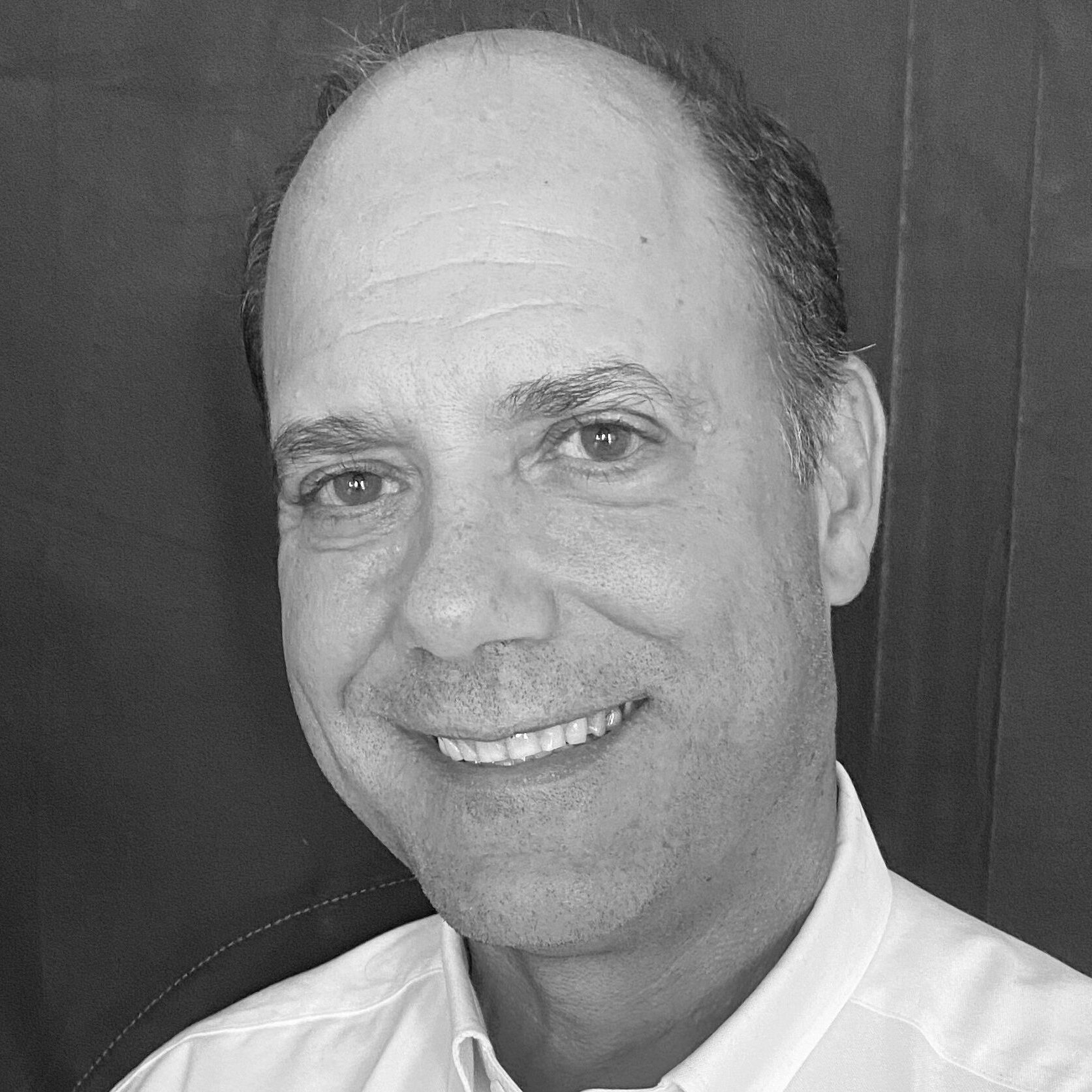
Faith and finance operate as two distinctly different worlds, using different language, moving at different speeds. On Sundays, we speak of mercy, forgiveness and salvation. On Mondays, it’s competitive advantage, profit margins and credit ratings. Modern finance is changing rapidly, driven by technology, innovation and globalization. Faith, in contrast, is steady, focused on truths that are unchanging.
Decades ago, a small-town banker would share much in common with the local pastor, apart from a small gap when it came to “talking shop.” That gap has widened considerably as the specialization required to understand modern finance has exploded. True, the same can be said for many other professions such as engineering, computer science and medicine, but those fields are largely viewed as admirable vocations that improve our lives with each technological advance. The pastor does not need to understand to admire.
Not so with finance. Innovations in leverage, securitization, algorithmic trading, risk management, credit and market access — which have vastly expanded the size and scope of financial markets — are often viewed as abstract schemes to create profits for an elite minority rather than necessary functions serving a global economy that benefits all. From the perspective of many finance professionals, the Church (and other institutions) largely see modern finance as a catalyst for inequality, greed and materialism — more modern-day money changer at the temple than noble vocation and source of good.
Yet the act of providing finance for commerce remains an essential aspect of human activity. In The Joy of the Gospel, Pope Francis declares that “Business is a vocation, and a noble vocation, provided that those engaged in it see themselves challenged by a greater meaning in life.” In Laudato Si, the Pope goes further, declaring that work “can be a fruitful source of prosperity for the areas in which it operates, especially if it sees the creation of jobs as an essential part of its service to the common good.”
The Second Vatican Council defined the common good as “the sum of those conditions of social life which allow social groups and their individual members relatively thorough and ready access to their own fulfillment.” Finance professionals can and should take comfort that our work can serve the common good. The challenge for us is that our contributions are not as obvious as those of pre-school teachers, doctors or firemen.
Modern finance increasingly utilizes scale and technology to achieve ever larger impact. This impact is often abstract rather than tangible. While this ability to create and multiply wealth seemingly out of thin air is one of its most powerful innovations, it is also the source of mystery, concern and fear. The accumulation of wealth by a select minority who have mastered this is easy to see; the benefits to society as a whole, less so.
It is also a question of motive. To critics, religious and secular alike, finance appears to have elevated market performance and capital efficiency into idols in themselves, rather than gauges on the dashboard. We no longer care where the car is going as long as we are moving fast.
So to assure that the world acknowledges the noble ends that finance serves, we must also demand that finance serve a greater purpose. As finance professionals, we are already governed by some of the strictest regulations of any profession. But as people of faith, we are called to even higher standards. We must ask the questions that our faith demands and follow the answers where they go.
These questions will undoubtedly take us places we would rather avoid, places where financial “innovation” in pursuit of effectiveness and efficiency does create wealth but at the expense of the common good, rather than in service of it. We are called upon to be agents of change to fix this. Asking questions may also reveal places where the positive contributions of finance are simply misunderstood or understated. In these cases, we should take the time to explain things to others who do not see this. The most promising path may lie in between — down roads where innovations can better serve the common good. This path is not a substitute for working to change larger, more deeply entrenched problems. But it is a place to start. Innovations that have already benefited only the privileged few represent opportunities to make changes that serve the common good more directly and tangibly.
One example of this is providing innovative financial services to small enterprises in the developing world. Financial innovations that have been available to entrepreneurs in the U.S. for years — for example, expanded credit, better risk management, and streamlined payments — are frequently beyond the reach of small businesses in Africa, South Asia and Latin America. Hedging currency risk is a challenge for business of all sizes and has historically been available only to very large companies. Innovations in modern finance can now offer these and many more services to a wider range of businesses of all sizes in all places. These are just a few examples of the enormous potential for finance to do good if it is directed at the right target, rather than simply put on autopilot.
Financial professionals of faith, take a measure of note that you are indeed engaged in a noble profession. But while monitoring your instruments for top speed and fuel efficiency, be sure to look out the front, side and rearview windows. Make sure you are heading in the right direction and leaving a positive trail as you go.